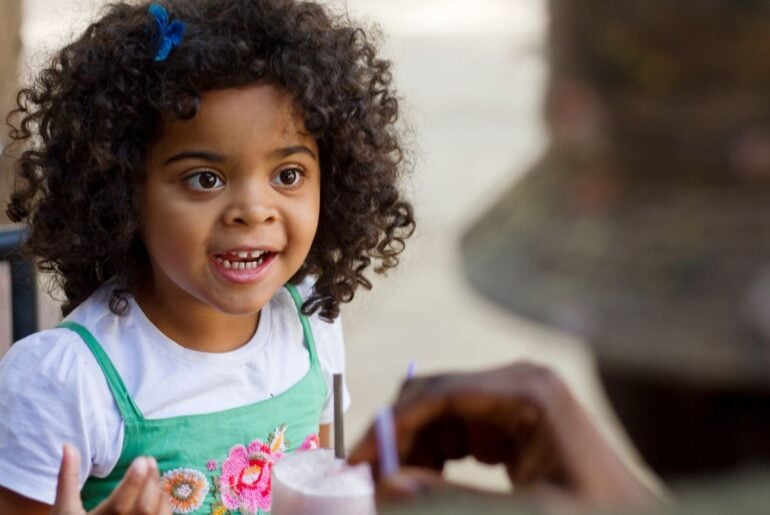Sometimes kids’ questions really make you think. Kids of all ages might wonder why some people can take their shirts off outside or at the pool — especially if they are girls and know that they’re not allowed to take their shirts off in public.
The answer is more complicated than it seems. Chests with breasts, and even young girls’ chests, are considered private parts — and this is very hard to explain to kids. But it’s also hard to explain to adults, when you think about it. Why do men sometimes go around with bare chests, anyway? And why can’t women?
When your kid asks tough questions like this about gender expectations or societal norms, try to be open in your response to leave space for critical thinking and even debate. You can use the sample script below to get started.
View this post on Instagram
Validate their curiosity:
“That’s a great question. And a tough one. What made you think of it?”
Give context:
“Unfortunately, over the years, society has made up different rules and expectations for boys and girls, and sometimes that means people get uncomfortable if certain body parts aren’t covered by clothes. A long time ago, women weren’t even supposed to show their ankles. Isn’t that silly?”
Encourage critical thinking:
“These rules aren’t always fair, and this might be a good example of one that could use some review. If you were writing a new rule, how would you make it better?”
“Respecting the rules is important, but it’s also important to think about whether rules are fair, and how we might try to make things more equal in the future.”
Depending on your kid’s level of interest, you could also add a discussion about:
- Why swimsuits for boys and men don’t usually come with a top — is it practical? What would they prefer?
- Breastfeeding in public, and why people who breastfeed are often expected to cover up or find a private space
Remember, you don’t have to have all the answers — no one does! You can think of their questions as an opportunity to learn more together. And best of all, you’ll be building a strong connection with your child so that they’ll want to come to you with other questions and concerns in the future.
Here are some other tricky but important discussions you may want to have with kids:







